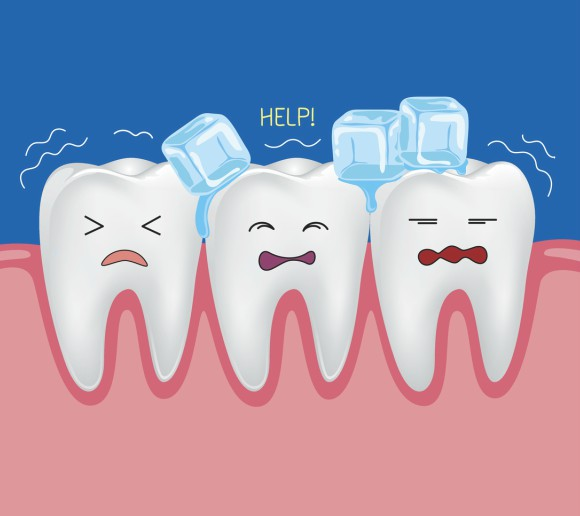Mouth Rinse For Sensitive Teeth: Instant Relief

For individuals suffering from sensitive teeth, everyday activities such as brushing, eating, or drinking can become a daunting task. The sharp pain or discomfort that arises from sensitivity can significantly affect one’s quality of life. Fortunately, using a mouth rinse specifically designed for sensitive teeth can provide instant relief and help alleviate this issue. In this article, we will delve into the world of mouth rinses for sensitive teeth, exploring their benefits, ingredients, and how they work to provide comfort and protection.
Understanding Tooth Sensitivity
Tooth sensitivity is a common dental condition characterized by a sharp, stinging, or stabbing pain in response to various stimuli, such as temperature changes, sweet or sour tastes, or even the pressure of brushing. This sensitivity arises when the dentin, the layer beneath the enamel, becomes exposed. The dentin contains tiny tubes or canals that lead to the pulp of the tooth, and when these are exposed, external stimuli can travel through the tubes and reach the pulp, triggering pain.
The Role of Mouth Rinses
Mouth rinses designed for sensitive teeth play a crucial role in alleviating sensitivity. These rinses typically contain ingredients such as potassium nitrate, sodium nitrate, or strontium chloride, which help block the dentinal tubules, reducing the flow of stimuli to the pulp and thus decreasing sensitivity. Some mouth rinses may also contain ingredients that help strengthen tooth enamel or reduce plaque and gingivitis, offering additional oral health benefits.
Key Ingredients in Mouth Rinses for Sensitive Teeth
Potassium Nitrate: This is one of the most common and effective ingredients in mouth rinses for sensitive teeth. It works by desensitizing the nerve endings, providing relief from sensitivity.
Sodium Nitrate: Similar to potassium nitrate, sodium nitrate helps in reducing sensitivity by blocking the dentinal tubules.
Strontium Chloride: This ingredient helps in blocking the dentinal tubules, thereby reducing sensitivity. It is often used in combination with other desensitizing agents.
Fluoride: While primarily known for its role in strengthening tooth enamel and preventing decay, some mouth rinses contain fluoride to provide an additional layer of protection against sensitivity.
Benefits of Using a Mouth Rinse for Sensitive Teeth
- Instant Relief: Many mouth rinses can provide immediate or rapid relief from tooth sensitivity, making them a valuable addition to one’s oral care routine.
- Ease of Use: Mouth rinses are typically easy to use, requiring only a swish of the liquid around the mouth before spitting it out.
- Comprehensive Protection: In addition to addressing sensitivity, some mouth rinses offer protection against plaque, gingivitis, and bad breath, providing a comprehensive oral health solution.
Choosing the Right Mouth Rinse
When selecting a mouth rinse for sensitive teeth, several factors should be considered:
- Active Ingredients: Look for a rinse that contains proven desensitizing ingredients such as potassium nitrate.
- ADA Seal of Acceptance: The American Dental Association (ADA) Seal of Acceptance is a mark of safety and effectiveness.
- User Reviews: Reading reviews from other users can provide insight into the product’s efficacy and any potential issues.
- Dental Professional Recommendation: Consult with a dentist or dental hygienist for a recommendation tailored to your specific needs.
Frequently Asked Questions
How often should I use a mouth rinse for sensitive teeth?
+It's generally recommended to use a mouth rinse for sensitive teeth as directed on the label, typically once or twice a day. However, the frequency of use may vary depending on the product and your specific dental needs. Always consult with a dental professional for personalized advice.
Can mouth rinses for sensitive teeth be used by anyone?
+While mouth rinses for sensitive teeth are generally safe for most adults, certain individuals, such as children and pregnant women, should consult with a dental professional before use. Additionally, if you have any underlying health conditions or are taking medications, it's crucial to discuss the safety of using a mouth rinse with your dentist or doctor.
Do mouth rinses for sensitive teeth replace regular brushing and flossing?
+No, mouth rinses for sensitive teeth are meant to be used as part of a comprehensive oral hygiene routine that includes regular brushing with fluoride toothpaste and flossing. These rinses can provide additional benefits but should not replace the foundational practices of brushing and flossing.
Conclusion
Mouth rinses for sensitive teeth offer a valuable solution for individuals struggling with this common dental issue. By understanding how these rinses work, their ingredients, and how to choose the right one, individuals can find instant relief and enjoy a more comfortable life, free from the pangs of tooth sensitivity. As with any oral health product, it’s essential to maintain good oral hygiene practices and consult with a dental professional for personalized advice. With the right mouth rinse and a commitment to oral care, overcoming tooth sensitivity is achievable, allowing for a healthier, happier smile.

